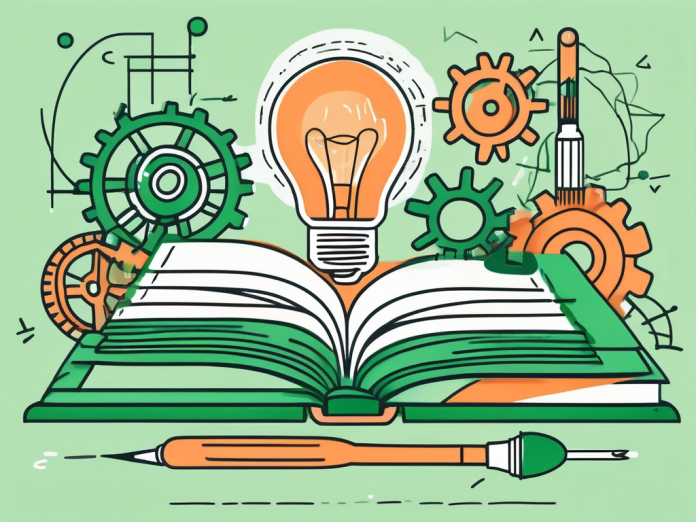In today’s fast-paced world, learning shouldn’t stop once we leave formal education. The concept of lifelong learning has gained significant attention in recent years, with individuals recognizing the need to continually acquire new knowledge and skills to thrive in a rapidly evolving society.
Understanding Lifelong Learning
Before delving into the benefits and practical aspects of lifelong learning, it’s essential to grasp the basic definition and key concepts. Lifelong learning refers to the ongoing pursuit of knowledge and personal development throughout one’s entire life. It goes beyond the traditional classroom setting and emphasizes the importance of learning from various experiences, both formal and informal.
Definition and Key Concepts
Lifelong learning encompasses a learner-centered approach, where individuals take responsibility for their own learning journeys. It involves being proactive in seeking new knowledge, skills, and perspectives, rather than waiting for learning opportunities to come to them. Lifelong learners understand that learning is a continuous process that transcends age, occupation, and background.
Moreover, lifelong learning is not just about acquiring new information; it also involves unlearning outdated knowledge and relearning in light of new discoveries and advancements. This process of continuous adaptation and growth is essential in a rapidly changing world where skills become obsolete and new challenges emerge regularly.
The Role of Curiosity in Lifelong Learning
At the heart of lifelong learning lies curiosity – the insatiable desire to explore, discover, and understand the world around us. Curiosity encourages us to question, seek answers, and embrace new ideas. It fuels our motivation to learn and helps us overcome challenges and setbacks. Cultivating curiosity is thus crucial for fostering a lifelong love of learning.
Furthermore, curiosity not only drives individual learning but also fosters innovation and progress in society. It sparks creativity, pushes boundaries, and leads to breakthroughs in various fields. By nurturing curiosity in both ourselves and others, we contribute not only to personal growth but also to the collective advancement of knowledge and understanding.
The Benefits of Lifelong Learning
Engaging in lifelong learning offers a multitude of benefits that extend to all aspects of our lives, including personal growth, professional advancement, and overall well-being.
Personal Growth and Self-Improvement
Lifelong learning enables individuals to expand their horizons, gain new perspectives, and develop a deeper understanding of themselves and the world. It enhances critical thinking, creativity, and problem-solving skills, enabling personal growth and self-improvement. By continually acquiring knowledge and nurturing new interests, we can lead more fulfilled and enriched lives.
Career Advancement Opportunities
In an ever-changing job market, keeping up with new trends and developments is essential for career success. Lifelong learning equips individuals with the skills and knowledge required to adapt to evolving industry needs. By staying abreast of the latest advancements in their fields, professionals can seize new opportunities, enhance their employability, and ensure long-term career advancement.
Health Benefits and Mental Agility
Lifelong learning has also been strongly linked to improved cognitive health and mental agility. Engaging in mentally stimulating activities, such as learning a new language, playing an instrument, or acquiring technological skills, can help sharpen memory, enhance concentration, and delay the onset of age-related cognitive decline. Learning keeps our brains active and healthy, contributing to overall well-being.
Lifelong Learning in the Digital Age
Enter the digital age, and access to knowledge is at our fingertips. The internet and technology have revolutionized the way we learn, making lifelong learning more accessible and convenient than ever before.
Online Learning Platforms and Resources
Online learning platforms, such as Massive Open Online Courses (MOOCs), provide a vast array of courses from leading universities and experts globally. These platforms offer flexibility in terms of time, location, and pace of learning, making education accessible for anyone with an internet connection. With online resources ranging from video lectures to interactive quizzes and discussion forums, learning has never been more engaging.
The Impact of Technology on Continuous Education
Technology has also transformed continuous education in various fields, such as healthcare, where professionals can participate in virtual conferences, webinars, and online training programs. The integration of virtual reality (VR) and augmented reality (AR) further enhances learning experiences, allowing individuals to visualize concepts and interact with virtual environments. The possibilities seem limitless, making lifelong learning both exciting and relevant in the digital age.
Overcoming Barriers to Lifelong Learning
While the benefits of lifelong learning are abundant, various barriers can hinder individuals from engaging in continuous education. Recognizing and addressing these challenges is key to unlocking the full potential of lifelong learning.
Time Management Strategies
One common challenge is finding time amidst busy schedules. However, effective time management techniques, such as setting priorities, allocating dedicated learning periods, and eliminating distractions, can help individuals make room for continuous learning. By adopting proactive time management strategies, individuals can successfully juggle their personal, professional, and educational commitments.
Motivation and Persistence
Staying motivated and persevering through challenges is another hurdle many face. Developing a growth mindset, setting achievable goals, and seeking support from peers or mentors can help fuel motivation and overcome obstacles. Additionally, celebrating small successes along the learning journey can act as a source of encouragement, boosting enthusiasm and determination.
Implementing Lifelong Learning in Daily Life
Making lifelong learning a part of our daily lives requires intentional efforts and planning. By incorporating learning into our routines, we can ensure that it becomes a sustainable practice.
Creating a Personal Learning Plan
Start by creating a personal learning plan, outlining your areas of interest, goals, and resources available. This plan will serve as a roadmap, guiding your learning journey and keeping you focused and accountable. Setting achievable milestones along the way will enable you to measure progress and celebrate achievements.
Balancing Work, Life, and Education
Balancing multiple responsibilities can be demanding, but finding synergy among work, life, and education is possible. Look for opportunities to incorporate learning into your daily activities. For example, listening to educational podcasts during your commute or reading articles during breaks can turn downtime into valuable learning moments. Embrace the concept of microlearning, breaking down complex subjects into bite-sized chunks that can be easily consumed amidst your busy schedule.
In conclusion
Embracing lifelong learning is not only beneficial but crucial in today’s fast-changing world. By adopting a learner-centered mindset and leveraging the resources available, we can continue to grow, adapt, and thrive throughout our lives. Lifelong learning is a journey without an end, but it offers rewards that go far beyond acquiring knowledge, empowering us to lead more fulfilling, successful, and enriched lives.




























